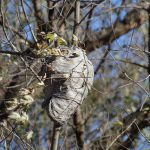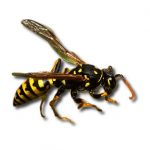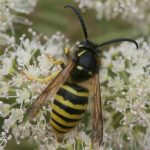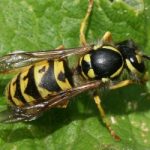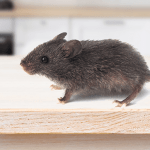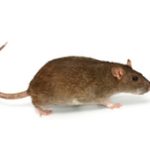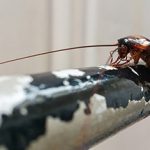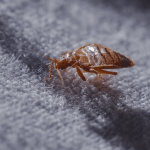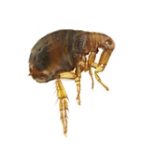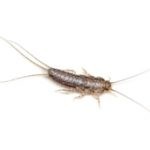How to Get Rid of a Wasp Nest
Colonies of hornet wasps are at their peak in the late summer and their nests can contain as many as 700 members. But wasp nests are bigger and their inhabitants can reach 10,000.
So, it’s a good plan to keep any of those nests away from your home. You can’t completely prevent wasps from forming a nest, however, you can remove it in a safe and inexpensive way. Here’s how.
How to detect a wasp nest?
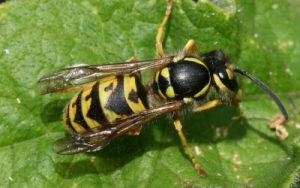
The first problem you may encounter is wasp nest identification and more precisely, is it wasps you’re dealing with or are those bees. It’s important to distinguish between the species because the latter are protected by government law and their nests shouldn’t be destroyed.
Look for an over-abundance of the pesky insects. If you have a vegetable garden, you can be sure that’s the thing that drew them in. If you have lots of still water, you’ve just scored another point. It should be pretty simple to find the location of the nest if you stand still for a few minutes and study their flight path. Observe them long enough and you’ll be able to spot where they’re coming from.
Look around the roof. Maybe even around your neighbour’s roof. Look closely at the fascias and soffits to determine if they have started to deteriorate and rot. If damaged, they could open up gaps that the wasps can take advantage of and get into the loft.
Another favourite place for wasps is the area where cables enter the house, garden sheds, or garages. But be aware that a wasp nest can also appear in the ground. In this case, they would make a hole, which will be most likely covered by leaves and other debris they’ve found on the ground.
What to do if you have a wasp nest
When it comes to dealing with a wasp’s nest, you have two options:
- To hire a professional wasp nest removal specialist;
- To attempt to remove the nest yourself.
There are many DIY methods to remove nests, however, you should avoid dealing with wasps on your own if you are allergic to them (or if you don’t know your allergy status). These insects are awfully aggressive and will not wait for you to provoke them in order to attack you.
The best way to get rid of a wasp’s nest is to get a professional to do it. Not only is it the fastest way of doing things but also the surest, safest and most cost-efficient. It may look easy but the fact is, exterminators are trained and equipped to deal with nests quickly while ensuring the safety of everyone around. They remove wasp nests on a daily basis as part of their job and they do it with the help of professional-grade products not available to the wide public. These products are more powerful than the ones you can buy from your local store and they ensure a quick death of the nest.
How to get rid of a wasp nest yourself
If you feel brave and educated enough, you can try to get rid of the wasp nest yourself, even though this course of action is not recommended. Whether it’s hanging under the eaves or hidden in the ground, wasp nests can become a serious nuisance, especially in summer. Removing one yourself can be done safely if the nest is small and you’re prepared.
1. Identify the nest type and location
Observe from a distance to determine if the nest is aerial (hanging from a structure) or in the ground. Take note of wasp activity, size of the nest, and whether it’s in a high-traffic area. Never disturb the nest without a plan. Wasps are highly defensive.
2. Choose the best time to remove the wasp nest
Early in the year
Queen wasps exit their hibernation state in early spring and start to form new colonies. This means that in late spring and early summer the nest is still small and focused on growth. If you want to remove the nest without harming the wasps, this is the best time to do so. If you postpone its removal, it will only get harder and more dangerous for you to do so.
Do it at night
Wasp nests are best removed at night time because wasps are less active, react slowly and are far less aggressive. Use a red coloured light to view the nest or wait until early morning to take advantage of the morning light.
*Do not remove nests if they are located on a difficult-to-reach spot.
*Do not remove nests if you are allergic to wasp’s venom.
*If you’re not allergic and it’s the end of summer, consider leaving the nest to perish naturally.
3. Prepare to remove the wasp nest
Dos
- Wear protective clothing – make sure you have protective wear on if attempting to get rid of a wasp’s nest on your own and take extra measures when covering sensitive areas such as your face and neck – wasp stings are most painful on those areas.
- Have a backout plan – plan and prepare an escape route in case things don’t go as planned and the wasps attack you. Try to get inside your house, for example.
- Prepare a first aid kit for wasps stings – if a wasp still manages to sting you even after all your careful preparations, you’ll need to take care of the wound. For that purpose, you can use the contents of your first aid kit. However, make sure to observe the sting for at least 24 hours to ensure that you won’t suffer from an allergic reaction.
Don’ts
- Do not stand on a ladder – It’s not smart to attempt to remove wasp nests that are located out of your reach, especially using a ladder. If these ferocious insects attack you, you not only risk becoming a more vulnerable target but also getting injured pretty badly. It’s best if you leave nests that you can’t reach to professional exterminators.
- Keep pets and children away – When removing a wasp’s nest, make sure that children and pets are absent from the area. You need to protect them not only from the aggravated wasps but also from the poisonous products if you’re using any. Once the wasps are exterminated, dispose of the nest to prevent pets and other animals from ingesting the dead but toxic wasps.
- Avoid lighting the area – Do not use a regular flashlight when removing a wasp’s nest at night, it will only attract the aggravated wasps towards you. Instead, opt for a red coloured light or target the nest early in the morning, just before sunrise.
4. Apply treatment
There are several effective options depending on the type and accessibility of the nest:
- Soap and water spray – A simple mix of dish soap and water can be surprisingly effective. Fill a spray bottle with water and add a few tablespoons of liquid dish soap. The soap breaks down the wasps’ exoskeletons and suffocates them.
- Wasp-specific insecticide – Available as aerosols or powders, but you need to follow the instructions carefully.
- Smoke method – Smoke can drive wasps out of their nest by suffocating them or making the nest uninhabitable. Light a small fire in a barbecue or metal container directly beneath the nest (only use this method outdoors and well away from flammable materials). Allow the smoke to billow up toward the nest for an hour or so. Approach with care after confirming the nest is empty.
- Wasp traps – Useful as a complementary method to reduce numbers or after treatment. Homemade wasp traps can be made using common household items and attractants like sugar water or meat. Cut a plastic bottle in half. Invert the top and place it into the bottom to form a funnel. Pour in some sugar water, beer, or fruit juice, and that’s it. You will be surprised how many wasps you’ll find in the trap. Just be sure to place the trap away from people and pets.
5. How to get rid of a wasp nest in the ground
Ground nests are common in lawns, flower beds, or at the base of trees. Yellowjackets and similar species often nest in small burrows or old rodent holes. These nests require special caution due to their hidden nature and the wasps’ aggression.
Key differences in the approach:
- Locate the nest entrance – Watch from a safe distance during the day and mark the entry hole.
- Use insecticidal dust – This is the most effective option for ground nests. Gently puff wasp powder into the hole at dusk. The dust will be carried into the nest, affecting the entire colony.
- Soap and water (Alternative) – Pour a mix of hot water and dish soap into the nest entrance, then quickly cover it with a bowl or rock to trap the wasps inside.
- Boiling water (last resort) – While effective for smaller nests, it may harm nearby plants and doesn’t always penetrate deeply enough to destroy the colony.
Once there’s no visible activity for 48 hours, you can safely fill in the hole with soil to prevent re-nesting.
How to deter wasps
As we’ve been discussing, wasps are valuable pollinators and a natural enemy of many pest insects in the garden. It’s not fair to give them a hard time just because of their violent nature.
Destroying a wasp nest is one way of dealing with them but another, far better option, is to deter them from building a nest on or near your property. An additional upside of deterring wasps is that you can do it completely naturally, without the use of toxic chemicals. For this purpose…
Want to get rid of a wasp nest?
Consider that we give an information on possible ways to get rid of wasp’s nest. However, we cannot affirm that all of the above approaches will work for you.



